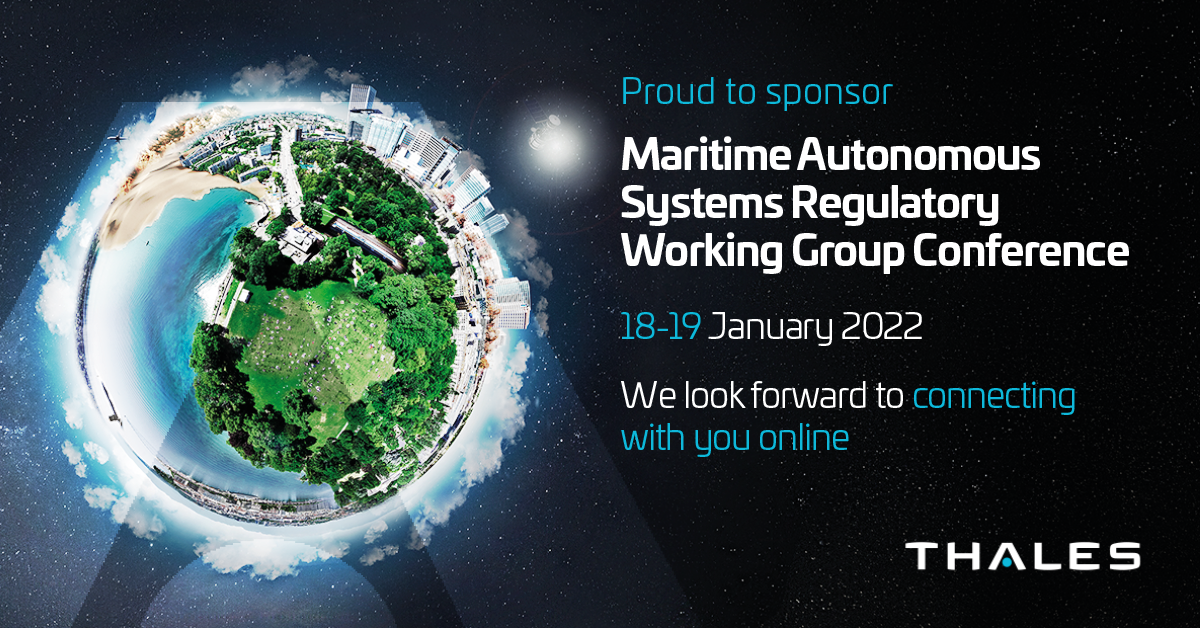Conference develops legal framework for autonomous vessels operating in UK waters
From maintenance drones in offshore windfarms to unmanned cargo vessels, autonomy offers huge potential benefits to the maritime sector.
As part of ongoing work to develop a regulatory framework that allows maritime autonomy to develop in a safe and sustainable way, key stakeholders from industry, academia and regulatory bodies are gathering online for the annual Maritime Autonomous Systems Regulatory Working Group (MASRWG) conference.
The conference is an opportunity to discuss best practices and have informal conversations to share problems and knowledge, discuss trends and the industry, which will inform the newest edition of the Maritime Autonomous Surface Ships UK Code of Practice, which offers valuable guidance on interpreting maritime law and convention correctly in an autonomous context.
A global leader in developing underwater and surface autonomous vessels and systems, Thales is sponsoring this year’s conference, on 18-19 January. Representing Thales is systems architect Andy Holmes.
We all want to deliver the capabilities that customers want but we need to do that in a way that’s safe and sustainable,” said Andy. “Collating the body of evidence to certify the safety of a system which uses very advanced algorithms, AI and machine learning is very complex, but this guide gives us all something to measure our due diligence activities against.”
He added: “This conference brings together a very diverse community of academics, regulators, the tech industry, boat builders and port authorities. It’s a very powerful opportunity to see different perspectives on how things are developing, and the problems other people are encountering in the sector.”
Andy works in Thales’s Autonomous Technology Centre, promoting a coordinated approach to developing reference architecture for autonomous systems within the UK and sharing lessons across the business and across the maritime, land and air domains.
A systems architect, Andy has been involved in maritime autonomy since 2012, working as project design authority for unmanned surface vessels as part of the Anglo-French MMCM programme.
“Maritime autonomy has been a great opportunity for me, and Thales being represented at the conference highlights our commitment to working with the other organisations and companies in the maritime community,” he said.
“Going back five years, autonomous systems were mainly research projects, but the gas, oil, offshore wind and defence industries are now seeing how this tech can deliver benefits. Autonomy is now starting to become real and there’s huge potential for future expansion, so it’s vital that through MASRWG we have the right regulatory framework in place.
“What’s refreshing is that regulators and industry are all really engaged. Everyone wants autonomy in the UK to be a success.”
Find out how Thales in the UK is committed to being at the forefront of the next great revolution in naval technology - Maritime Autonomy.



